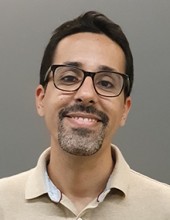
School violence and its prevention in Brazil and the United States: insights from a comparative research
School violence became a topic of interest of the Brazilian scholars in the late 1980s due to the wave of urban violence that took over large cities. A few decades later, school violence is still a big issue today in Brazil and the United States, especially after the pandemic, where many schools have been fighting to control the increase of violence in classrooms. This presentation discusses some more general questions about this topic: What kinds of data about school violence do we have available in Brazil and in the United States? How do public policies on school violence deal with issues involving discrimination, such as racism, sexism, religious intolerance, and ableism? Based on qualitative and quantitative research experiences on public schools in Rio de Janeiro and California, it seeks to point out some possibilities and challenges for the elaboration, implementation and evaluation of public policies to prevent school violence and discrimination.
Boris Maia, Visiting Scholar
Bóris Maia is currently a Postdoctoral Fellow at Federal Fluminense University (UFF) and a Visiting Scholar at the Lemann Center for Educational Entrepreneurship and Innovation in Brazil at Stanford University. He is a sociocultural anthropologist whose work is mainly concerned with the dynamics of state power and the functioning of the formal educational system in Brazil. His scholarship engages in the debates of both the anthropology and sociology of education in order to examine how the connections among race, ethnicity, religion, and gender produce hierarchies through schooling and how conflicts and violence in classrooms are linked to the way teachers exercise authority with the students. In the last years, he has been engaged in several research projects developed at the Institute of Comparative Studies in Conflict Management (InEAC-UFF) focused on how principals, teachers, and other school staff have been managing the conflicts that emerge in the school routine. At UFF, he has served as an instructor in graduate and undergraduate courses in Social Sciences, Anthropology, and Public Security programs.

